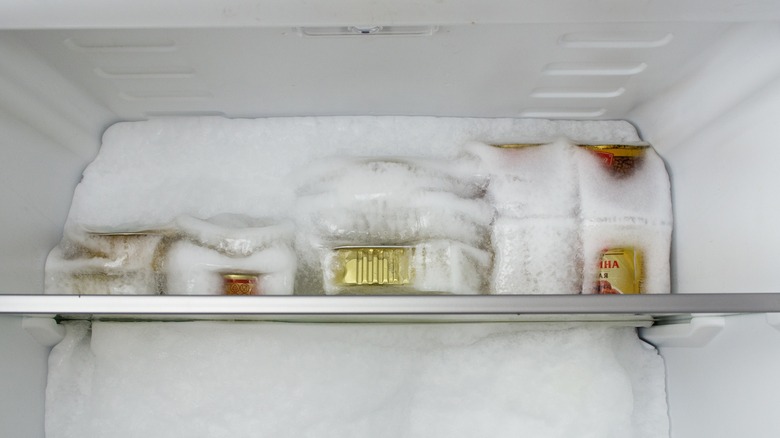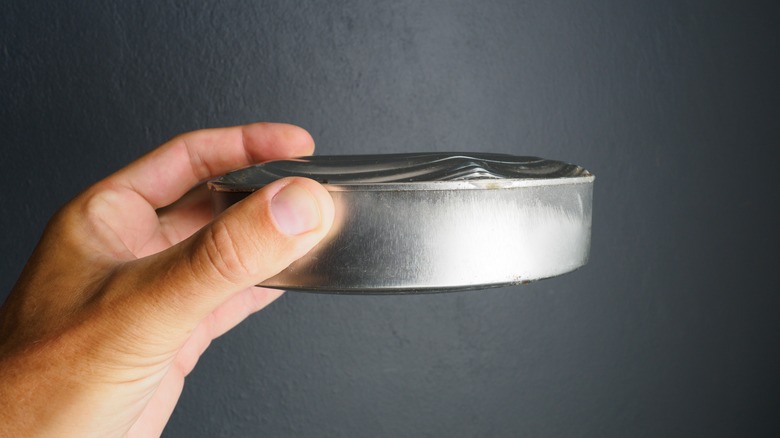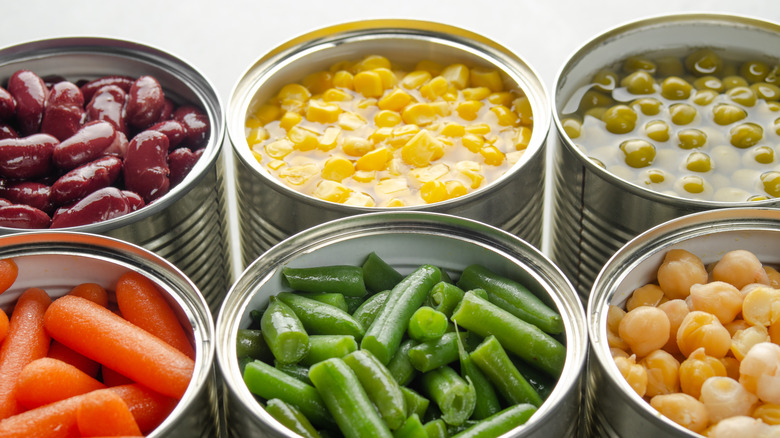What Happens If You Eat Canned Food That's Been Frozen?
You've just returned from grocery shopping on a cold winter day, but in the rush, you accidentally leave a bag in the car overnight. The next morning, you realize the mistake and find that your canned mushroom soup (which makes delicious, creamy pasta) has frozen solid. Or, the refrigerator gets turned on extra high, and the cans inside are covered in ice crystals. Now, you're wondering — are they still safe to eat?
Good news: Eating canned food that's been frozen is generally safe as long as the can remains intact, the seams aren't broken, and it isn't bulging. Although the contents should be okay to consume, you might notice some changes in texture. The food could be mushier and not as fresh as it normally would have been, similar to how frozen food sometimes loses its original consistency after thawing. If you realize that a can has been frozen, you'll want to follow a few steps to verify there's no damage before deciding to use it.
Checking for damage in frozen cans
Before using canned food that's been frozen, it's essential to inspect the can for any signs of damage or spoilage. Carefully examine the seams to see if they have burst, and check the can for dents, leaks, or any unusual smells — these could indicate that the contents are no longer safe to eat. If you notice any of these signs, discard the can immediately to avoid potential health risks.
When thawing a frozen can, place it on a tray in the refrigerator to catch any leaks from tiny, unseen cracks. After thawing, inspect the can again. If it shows any bulging, if liquid has leaked out, or if the food inside doesn't smell right, discard it right away. Bulging could indicate spoilage or the presence of dangerous toxins, such as botulism, a serious and potentially life-threatening foodborne illness. When disposing of the can, wrap it in plastic and discard it in a location where it cannot be accessed by people, pets, or wildlife.
What to do if you have to store canned food where it might freeze
If you live in an area where freezing temperatures are common, it's a good idea to store your favorite canned goods — don't worry, we're not judging your canned bread – in a place where they're less likely to freeze, like a pantry or a cabinet inside your home. Ideally, store them in a cool, dry area, away from heat sources like hot pipes, stoves, furnaces, or direct sunlight. Temperatures above 95 degrees Fahrenheit, can quickly degrade food quality, while moisture can cause metal lids to rust or seals to break.
If you have no choice but to store canned food in an area that might freeze, such as a garage or unheated basement, consider wrapping each can in newspaper and use blankets inside a box with a lid. This method adds multiple layers of insulation, helping to protect the cans from the cold and reducing the likelihood of them freezing and risking potential spoilage. Nonetheless, even if freezing occurs, you now have the knowledge to handle it with confidence and care.


